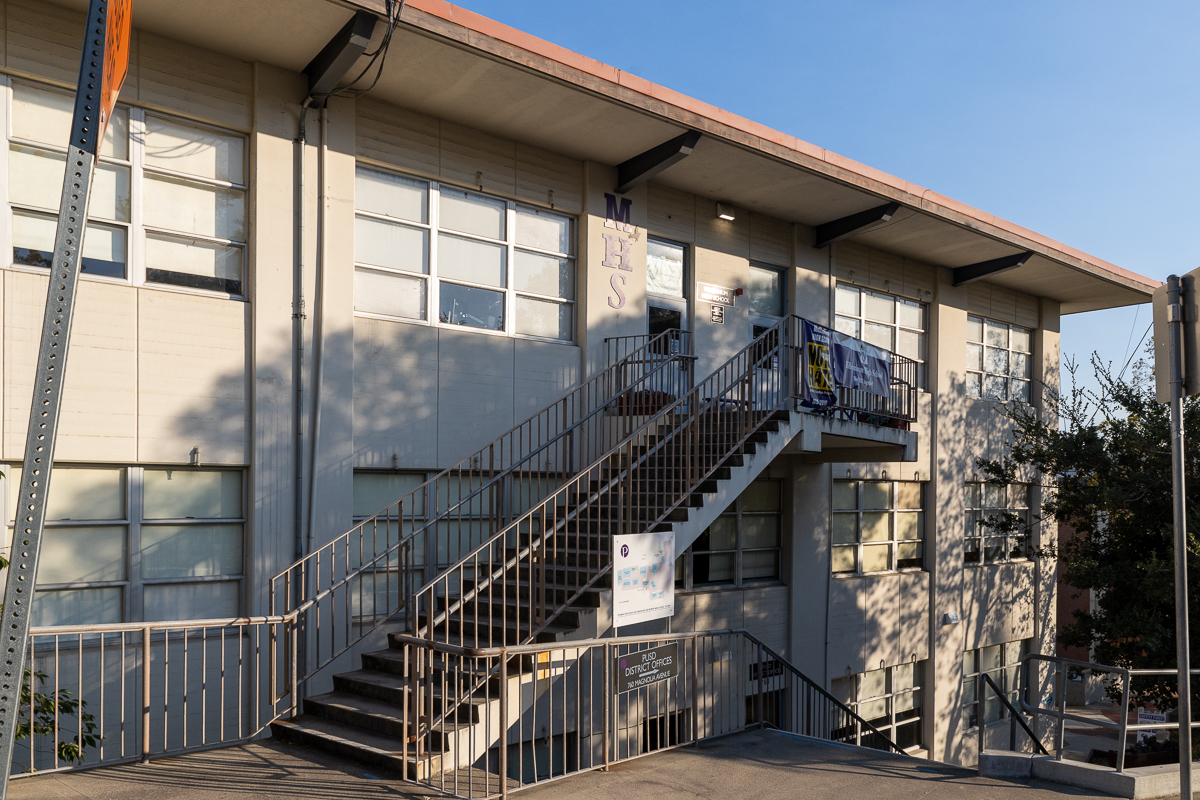Piedmont Unified School District’s ongoing efforts to develop a new priority list for interdistrict transfers with an eye toward increasing diversity of the school community made little headway at Wednesday night’s school board meeting, as trustees grappled with the unintended consequences of expanding the existing criteria and questioned the language of a revised policy brought forward by district leadership.
Trustees had directed the superintendent at the February 24 board meeting to expand the transfer criteria to include allowances for parents/guardians who are physically employed “within the boundaries of that district” (per provisions under the Allen Bill) and the children of high school coaches. They agreed that the so-called “grandparent privilege” should remain in place.
Assistant Superintendent Cheryl Wozniak presented the policy revisions to the board on behalf of the superintendent, who was absent due to a family emergency.
The new proposal under consideration consists of twelve categories and leaves the first two priorities — families renovating a home and high school junior and seniors who have moved out of the district — in place. The most notable changes to existing policy include an allowance for PUSD and city of Piedmont employees working at least 10 hours a week and the inclusion of a 10th category for PUSD athletic coaches and 11th for “persons employed within city limits.” A 12th catchall category for “other” applicants remains.
(The revised proposal also eliminates a special category for PEF director, adds a few Oakland parcels on Somerset Road and modifies language around other Piedmont parcels.)
The decision to admit students from out of the district is discretionary and dependent on available space.
PUSD is required to hold seats at all grade levels for residents who may move into the district after school starts, said Sylvia Eggert, the superintendent’s administrative assistant who is in charge of processing applications. School principals use historic and projected enrollment data to estimate that number, she said.
Trustees expressed varying degrees of concern over the revisions, with most recognizing that expanding the pool of applicants within PUSD and the city of Piedmont, for a limited number of spaces, would essentially mean that no student from the last category (“other” with no connection to district) could likely be considered.
While thanking the board for their commitment to expanding diversity, a representative from the Piedmont Racial Equity Campaign noted that by expanding criteria for Piedmonters of all stripes, to an outside observer the policy gave the impression that the policy’s intent was to keep other people out.
The Board’s discussion over how best to amend the criteria included thoughts about holding a lottery, eliminating the athletic coach category, or Trustee Veronica Andersen Thigpen said she supported keeping coaches, noting the diversity of this staff, but others found that category potentially problematic given the tendency for coaching staff to come and go. Public schools are also prohibited from explicitly targeting students based on race or ethnicity.
“We need a policy that works during enrollment drops and good times,” said Trustee Amal Smith. She noted that PUSD did not actually have much data to work with given the existing policy, which was revised in July 2019, had less than a year in force.
With no clear consensus around language or category priority beyond trying to figure out a mechanism to increase the number of applicants from outside the district, school board president Cory Smegal directed the board to email Superintendent Booker with comments and suggestions for another round of revisions before the next board meeting.

Considering long term employment physically within Piedmont would be good for reducing the potential carbon footprint of bringing in students from outside the area. However significant benefits would only be derived from folks who work here full time in career positions. That said, such a policy might help to attract and retain good people within Piedmont. If we ultimately end up with a revolving door of student transfers, the transferred kids will probably not experience significant gains in learning, which I would assume is one of the goals of increasing diversity.